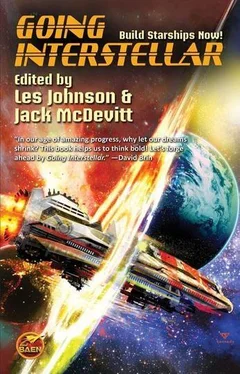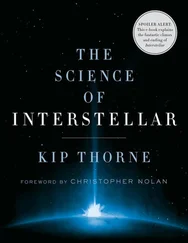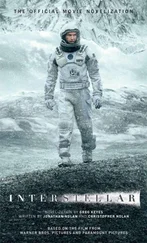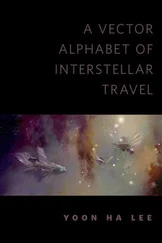“The ship was constructed in Earth orbit.”
I’d asked the wrong question. “How long since the ship left the sol system, then?” Ennio asked.
“Four hundred and twenty five years,” the voice answered.
I felt my heart clench. That had to be ten generations. Perhaps more. “How …how near are we to Alpha Centauri?” I asked.
“We should prepare to slingshot around the sun in …twenty four hours,” the computer answered.
Needless to say Ennio and I panicked. Twenty four hours. We couldn’t possibly learn to pilot the ship in that time.
This was, of course, silly. Whoever had designed the ship couldn’t expect us to. Turned out it didn’t even expect us to tell it to detach the outer portion of the sail, so the outer sail could focus the lasers—similar to the lasers that had given us additional speed on leaving sol orbit—onto the inner sail and slow the ship. The ship was wired hard to this hidden computer in a way that could not be severed. This computer would be executing the maneuver, no matter how much the other computer had been corrupted or its programing overpowered.
No, it turned out what we were needed for was something much more vital. We had to prepare everyone aboard ship for the hours of weightlessness as the ship stopped spinning while slowing and maneuvering into orbit at the new world. In the long time aboard, the practice of securing everything that could float had long stopped. Weightlessness could destroy the ponds in which we grew fish, it could forever break terminals capable of reading our records. Not to mention what it would do to toilets.
The computer told us all that would happen, but more importantly, it said, the people aboard would need to find out about the secret lifeboat bays—the ones that couldn’t be opened, so the landers couldn’t be cannibalized for parts, as it appeared the other well-known landers had been. In the situation we were in, the wise old owl said, everyone aboard would have to be told at the same time, so that a few people couldn’t find the boats and destroy them before anyone could take them and land.
Someone needed to tell the panicking population what was happening. Someone needed to have people expecting it and prepared. Oh, most people probably wouldn’t want to land. Not right away. Perhaps not ever. Once the ship was in orbit around our new home, and the ship’s sails retracted, life could go on as it had aboard the ship for eleven generations. Humans are creatures of habit and most people cared for nothing but their luxury rations. But after coming all this way, people should know there was another option available. An option to finish our mission. And people who wanted to leave should not be constrained to stay. And—most of all—in the confusion of the moments of weightlessness, it was necessary to keep fights from breaking out and disorder from descending on the ship. In just a few hours of riot, damage could be done that would lessen forever the chances of the colonists.
This seemed almost impossible. Neither Ennio nor I had any particular power in the ship. And who would listen to us? Look what had happened to Ciar, just for trying to see forbidden files.
And then I had an idea. It required me to work madly the rest of the night, but I could—and did—wire the Wise Old Owl so that it could speak to the whole ship at once. Many people might not believe it. And many people would ignore it, or suspect a prank. But at least there would be some warning. And when the people looked out at the stars around us, they’d see confirmation.
Then—as soon as we could—we asked the Wise Old Owl what to do about Ciar. It could not—so much the worse—magically open the door to his cell. It was directly wired to the ship’s navigation and landing systems, but not to the rest of the ship. All it could do was access the other computer’s memory and tell us where Ciar was kept.
That was enough, I assured Ennio. Even with the cell locked, I probably could open it. And when gravity stopped most people—even if alerted—would be disoriented long enough to lose track of keeping watch on a prisoner.
They didn’t know how to cope with null g, while I did. Null-g maintenance jobs are rare but they do happen aboard ship, and I’d been trained to handle that kind of environment.
The problem was that we were not on Earth. There was nowhere to run.
This was when the computer pitched in with the information that the landers were also scouts. As soon as we’d escaped the pull of the star around which we’d slingshot to slow our velocity, the larger of the lifeboats could take us there, and it would have provisions for the month we would need to land and for one more month afterwards.
We could lock ourselves in the boat and hide if the computer didn’t reveal our location until we’d departed.
I looked at Ennio, “If there’s no life on the planet, or no life compatible with ours. If we can’t eat the plants and animals of the world, we’re going to starve long before they come down with seeds and animals.”
A muscle worked on the side of Ennio’s face. “I know. But if we don’t do it, Ciar will die.”
What else is there to say? It went as planned. Well, almost as planned. Yes, the guards that had been assigned to Ciar’s cell were floating above us, completely unable to guard anything. Yes, opening his cell—with a cutting tool around the lock—was easy.
The hard part was keeping Ciar and Ennio moving properly in null-g till we could reach the capsule that took us to the chamber of the Wise Old Owl and, this time, beyond it, to the lifeboats.
The lifeboat—and why was it called that? It’s not like exiting to space would have saved anyone—was more comfortable than any of our lodgings, and had enough food for four people for two months.
And the planet turned out to have food of a sort. The bodies of water contained algae. A strange fish that looked like a jelly fish had a high speed collision with a salmon. Apparently they weren’t even really fish at all, but something between a plant and an animal, which has kept our scientists baffled so far, and will probably keep them so for many years to come.
But they were edible enough to keep us alive. Us and those who came after us.
We’ve used Earth food plants to colonize the land and start our farms.
It’s been thirty years since we landed and I’ve almost forgotten the stomach-churning fear of falling upward. I can look up at the deep blue night sky and feel nothing but wonder at how far we’ve come.
Thirty years later, I realize how lucky we were. We found the computer just in time to stop confusion and rioting and to know we’d arrived. If we’d not found the computer, the administration could have said the loss of gravity was a temporary malfunction. Only astrogators would have known we were orbiting a star, and, depending on how the computer records had been changed, they might have thought it was a different star. They could have been forbidden from asking further questions. We could have been prisoners in the ship for generations.
Perhaps forever.
Oh, some people still remain in the ship, orbiting the world. But living in the world is so much more rewarding, so much more free, that most everyone has come down, little by little. The young first, and those with some spirit of adventure. Which of course, had been squelched during the generations of living in a closed system, but apparently not entirely bred out.
My children would never know how to live in that close and regimented society. They’ve fanned out over the world, planted the land, grown animals, lived by their labor and answered to no man.
I did marry. Which of them? Can’t you guess?
Last year I had my first grandchild and I sing it to sleep with the songs that will tell them where we came from—so that if everything else is lost they’ll still know we came here from another world and that there will be other humans out there when their world is developed enough to send ships to other stars. I don’t doubt they will. All animals have a biological imperative to expand or die. And humans have been expanding their territory since they came down from the trees in a semi-tropical area of a little world now very far from us. We’ll continue expanding, beyond Alpha Centauri, beyond the Milky Way, on and on forever, until our species is so widespread no single calamity can render us extinct; till the fruits and knowledge of a thousand worlds make every single human freer and happier and wealthier than we can even dream.
Читать дальше












